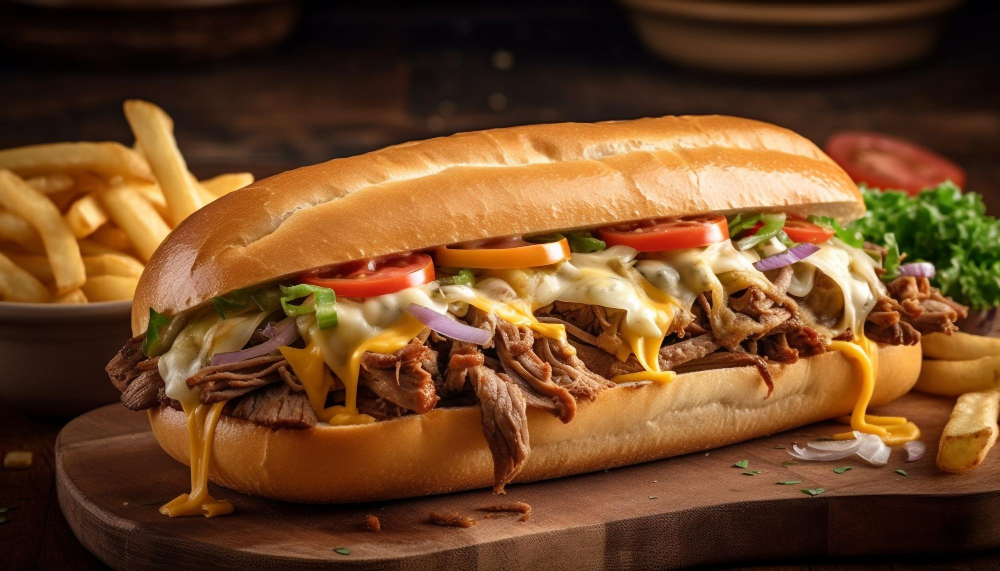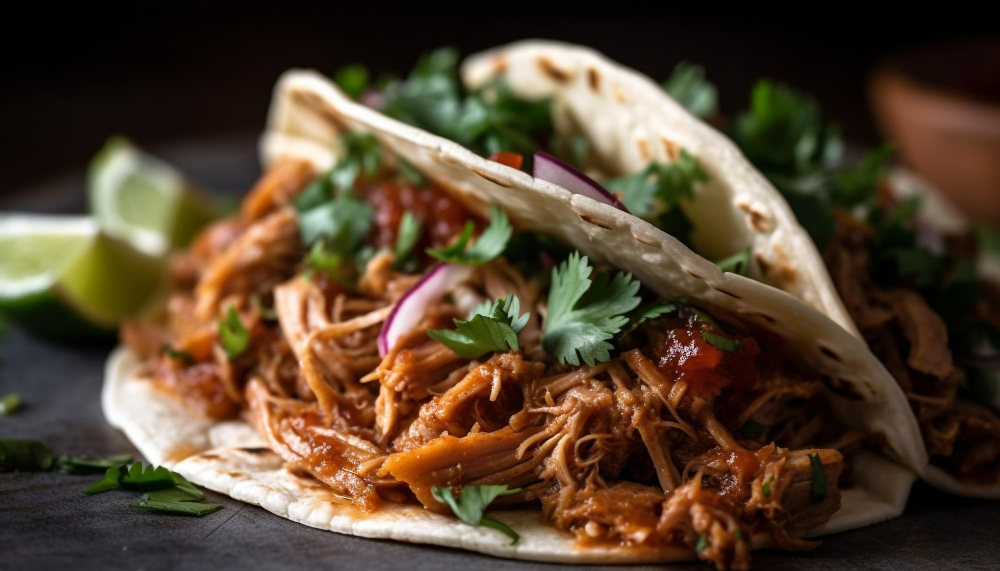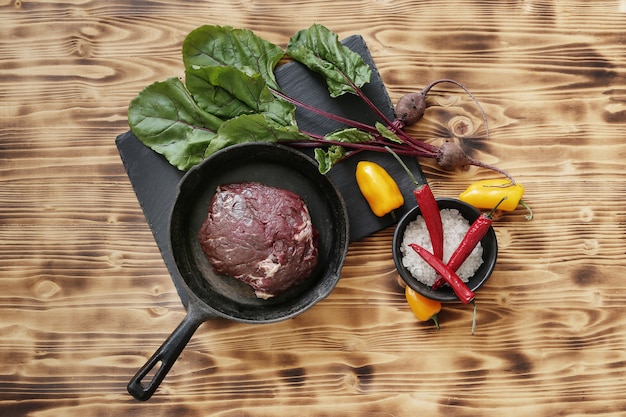Can I give my dog cooked pork?
The question of whether it is safe to give cooked pork to dogs is a common concern among pet owners. While pork is a popular meat in many households, it is important to consider the potential risks and benefits before feeding it to your furry friend.
Potential Risks
There are a few potential risks associated with feeding cooked pork to dogs. One of the main concerns is the risk of pancreatitis, which is an inflammation of the pancreas. Pork is a fatty meat, and consuming high levels of fat can trigger this condition in some dogs. Symptoms of pancreatitis include vomiting, diarrhea, and abdominal pain.
Besides pancreatitis, there is also a slight risk of trichinosis, a parasitic infection that can be transmitted through undercooked or contaminated pork. However, cooking pork at the appropriate temperature should eliminate this risk.
Another factor to consider is the seasoning and preparation of the pork. Many pork dishes are seasoned with ingredients like onions and garlic, which can be toxic to dogs. Additionally, certain cooking techniques like frying in oil may add unnecessary fat to the meat, further increasing the risk of pancreatitis.
The Benefits of Cooked Pork
Despite the potential risks, there are also some benefits to feeding your dog cooked pork. Pork is a good source of protein, which is essential for your dog’s overall health and wellbeing. It also contains various vitamins and minerals, including thiamine, niacin, and zinc.
When feeding your dog cooked pork, it is important to ensure that it is lean and well-cooked without any seasoning or added fats. Lean cuts such as pork loin or tenderloin are preferable, as they have lower fat content. Remove any visible fat or skin before offering it to your dog.
Considerations and Moderation
As with any new food, it is important to introduce cooked pork gradually and in moderation to your dog’s diet. Monitor your dog for any adverse reactions or digestive issues after consumption. If your dog has any underlying health conditions or dietary restrictions, it is best to consult with your veterinarian before adding pork to their diet.
Additionally, it is crucial to remember that every dog is different, and what may be safe for one dog could pose risks to another. Some dogs have sensitivities or allergies to certain meats, including pork. Observing your dog’s behavior and consulting with a veterinary professional is always recommended.
“Feeding your dog a balanced and nutritionally complete diet should be the priority.”
In conclusion, while cooked pork can be a good source of protein and nutrients for dogs, it is essential to consider the potential risks involved. The key lies in feeding lean, well-cooked pork without any seasoning or added fats. Monitoring your dog’s reaction and consulting your vet is crucial to ensure their safety and overall well-being. However, it is important to remember that feeding your dog a balanced and nutritionally complete diet should always be the priority.
Is Pork Better than Chicken for Dogs?
When it comes to choosing the right type of meat for your furry friend, there are many factors to consider. One common debate among dog owners is whether pork or chicken is a better option for their pet’s diet. Let’s dive into the pros and cons of each to help you make an informed decision.
Pros and Cons of Pork
Pork is a great source of protein, vitamins, and minerals for dogs. It contains essential amino acids that support muscle growth and repair. However, it is important to note that pork can be high in fat, so it should be fed in moderation to prevent weight gain and digestive issues.
Key points about pork for dogs:
- High in protein, vitamins, and minerals
- Potential for high-fat content
- Moderation is key
“While pork can be a healthy addition to a dog’s diet, it should always be cooked thoroughly to eliminate any potential parasites or bacteria.”
Pros and Cons of Chicken
Chicken is a staple in many dog foods due to its high protein content and lower fat compared to pork. It is also rich in essential nutrients like zinc and vitamin B6. However, some dogs may be allergic to chicken, so it is essential to monitor your pet for any adverse reactions.
Key points about chicken for dogs:
- High in protein, low in fat
- Rich in essential nutrients
- Possible allergenic properties
Choosing the Right Meat for Your Dog
Ultimately, the decision between pork and chicken depends on your dog’s individual needs and preferences. It is important to consult with a veterinarian before making any significant changes to your pet’s diet. A balanced diet that includes a variety of protein sources, including both pork and chicken, is often the best approach.
Summary:
| Pros of Pork | Cons of Pork | Pros of Chicken | Cons of Chicken |
|---|---|---|---|
| High in protein, vitamins, and minerals | Potential for high-fat content | High in protein, low in fat | Possible allergenic properties |
Remember, every dog is different, so it’s essential to observe how they respond to different meats and adjust their diet accordingly. Understanding the nutritional benefits and potential drawbacks of both pork and chicken can help you make the best choice for your canine companion.
Is cooked pork fat bad for dogs?
Pork is a commonly consumed meat in the UK, and many dog owners wonder if it is safe to share cooked pork fat with their furry friends. While small amounts of cooked pork fat may not harm your dog, it is generally best to avoid feeding it to them.
Potential Risks
Fat Trim: Feeding your dog pork fat trimmings can lead to digestive upset, including diarrhea and pancreatitis. Pork fat is high in calories and can be difficult for dogs to digest, especially if they consume excessive amounts.
Salted or Spiced Pork: Dogs should never consume pork that is seasoned with salt, spices, or flavorings. These additives can be harmful to dogs and may cause an upset stomach or even toxic reactions.
Alternatives to Pork Fat
If you want to treat your dog without risking their health, there are several safe alternatives to pork fat that you can consider:
- Peanut Butter: Dogs love the taste of peanut butter, and it can be a great alternative to pork fat. Just make sure to choose a brand that does not contain xylitol, as this sweetener is toxic to dogs.
- Lean Meat: Instead of fatty pork, opt for lean meats like chicken or turkey. Remove any skin or bones before offering it to your dog.
- Fruits and Vegetables: Many fruits and vegetables are safe for dogs and can make healthy, low-fat treats. Some examples include carrots, blueberries, and green beans.
“It’s important to remember that every dog is different, and what works for one may not work for another. If you have any concerns or questions about your dog’s diet, it’s always best to consult with your veterinarian.”
While cooked pork fat may not be immediately harmful to dogs in small quantities, it is generally best to avoid feeding it to them. There are plenty of other safe and healthy alternatives that can provide your dog with a tasty treat without the potential risks associated with pork fat.



